News
Launched in 1999 and updated regularly, Statewatch News includes our own reporting and writing as well as articles, announcements, documents and analyses from elsewhere on civil liberties, EU policies and state practices. You can receive updates in your inbox by signing up to our mailing list, or use our RSS feed to get instant alerts.

France: Court bans drone surveillance of demonstrations
The Council of State ruled on 22 December that the Paris Police Prefecture must cease its drone surveillance of demonstrations. This follows a ban put in place last May, but goes even further than that ruling. The country's highest administrative court has left little room for the government to authorise aerial surveillance of protests in its proposed 'Global Security' law.
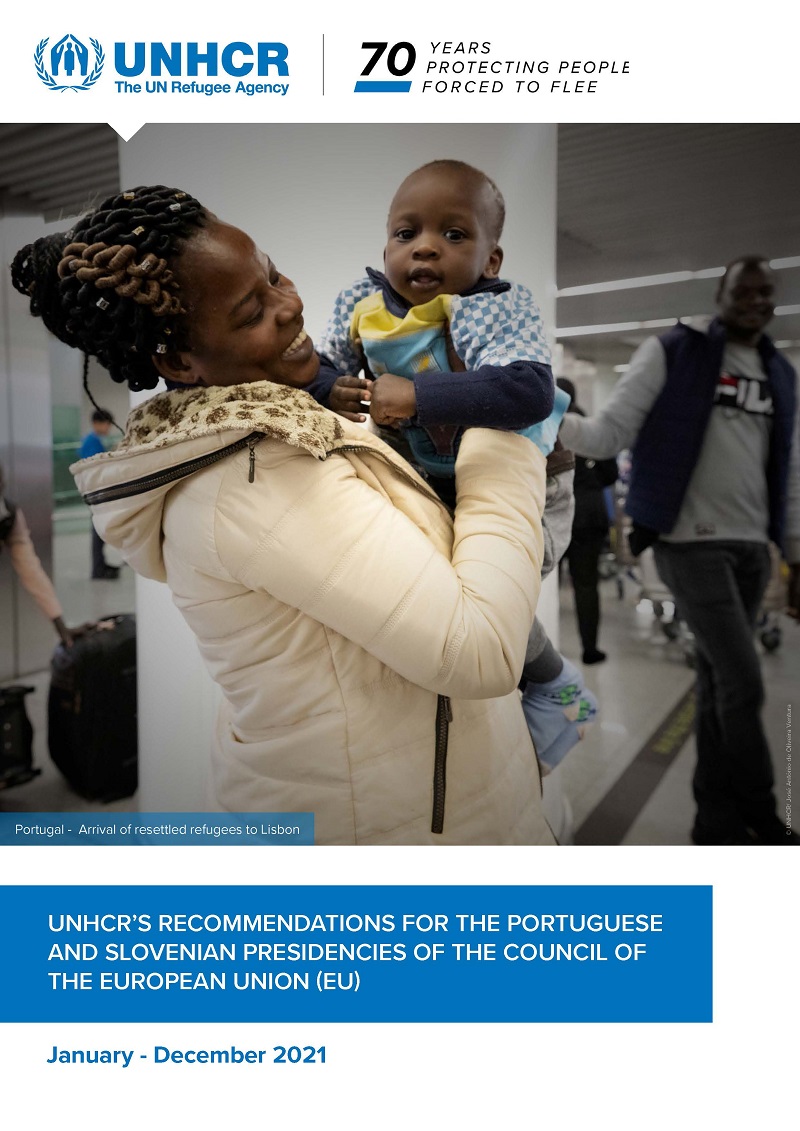
Tracking the Pact: UNHCR calls on EU to uphold refugee rights in new migration legislation
The UNHCR has released a new set of recommendations for the current Portuguese Council Presidency and the subsequent Slovenian Council Presidency. The UN refugee agency "welcomes the direction of the proposed EU Pact, its comprehensive approach, and emphasis on solidarity and addressing root causes of forced displacement," and "encourages the Presidencies to explore avenues for progress on key issues such as solidarity and border procedures," amongst other things.
UK: "Political" prosecution of over 1,000 Extinction Rebellion activists
More than 3,400 people were organised on protests organised by Extinction Rebellion last year, and about 1,700 of those have been charged. Of those, 900 have plead guilty and a further 800 have been tried or are awaiting trial. The decision to charge so many people for minor offences looks "political", according to one researcher following the cases.
Death on the Central Mediterranean: 2013-2020
A new timeline provides a useful chronology of the migration situation in the Mediterranean, where over 13,000 people have died since 2013. The timeline looks at state powers and practice and the responses from civil society, such as the launch of search and rescue missions - which are increasingly being criminalised.
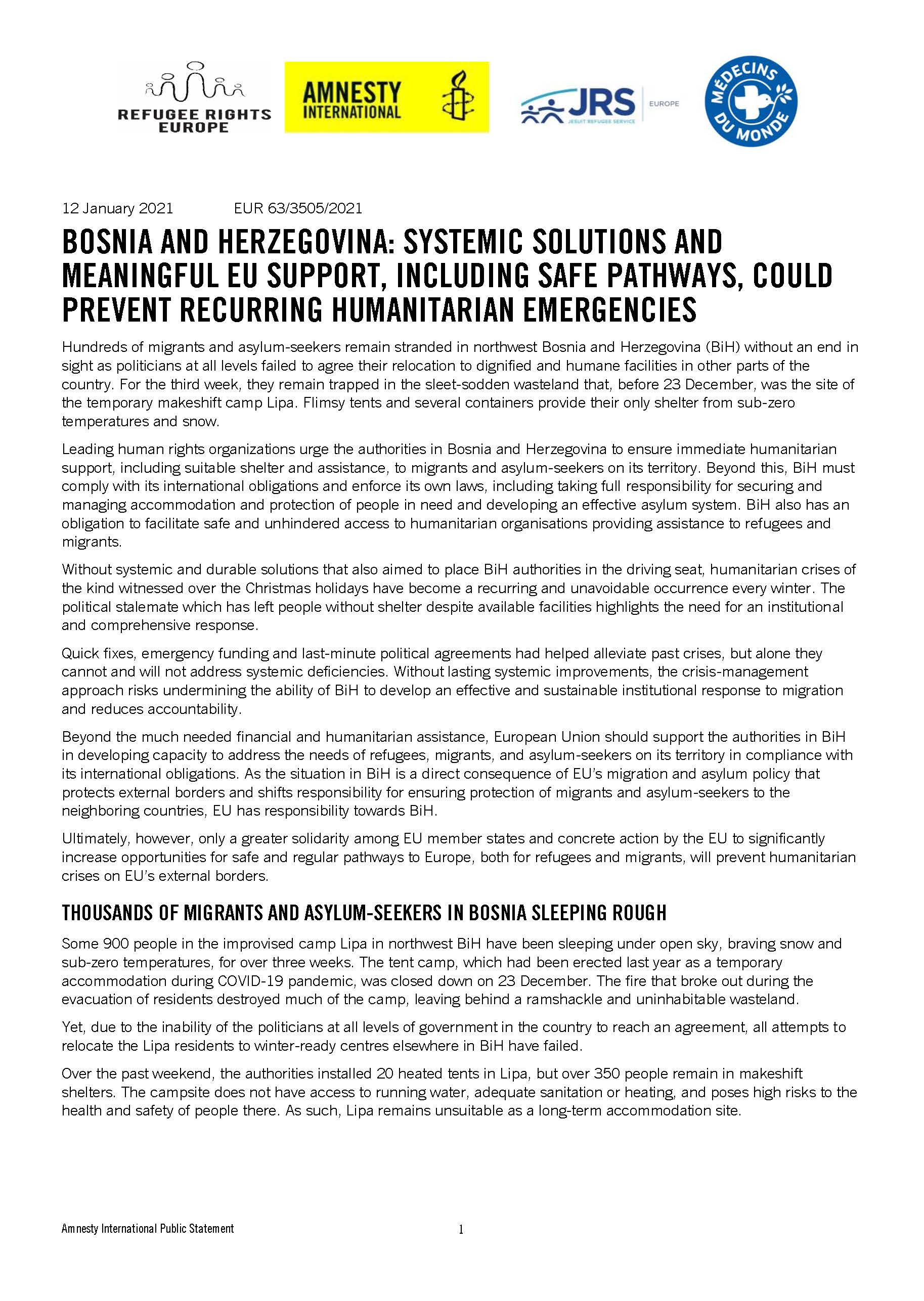
Humanitarian crisis in Bosnia and Herzegovina: "an inevitable consequence" of EU border externalization, say major NGOs
Refugee Rights Europe, Amnesty International, the Jesuit Refugee Service and Médicins du Monde have said that the ongoing humanitarian crisis in Bosnia and Herzegovina - where thousands of refugees and migrants are stranded in appalling conditions - is "an inevitable consequence of the EU's externalization policy".

EU: The 'Black Book of Pushbacks': testimonies of pushbacks affecting over 12,000 people
The 'Black Book of Pushbacks' has been produced by the Border Violence Monitoring Network to document "the horrific violence suffered by over 12,000 people at the hands of authorities on the EU’s external borders". The publication, which documents so many incidents that it comes in two volumes, was launched on International Migrants Day.
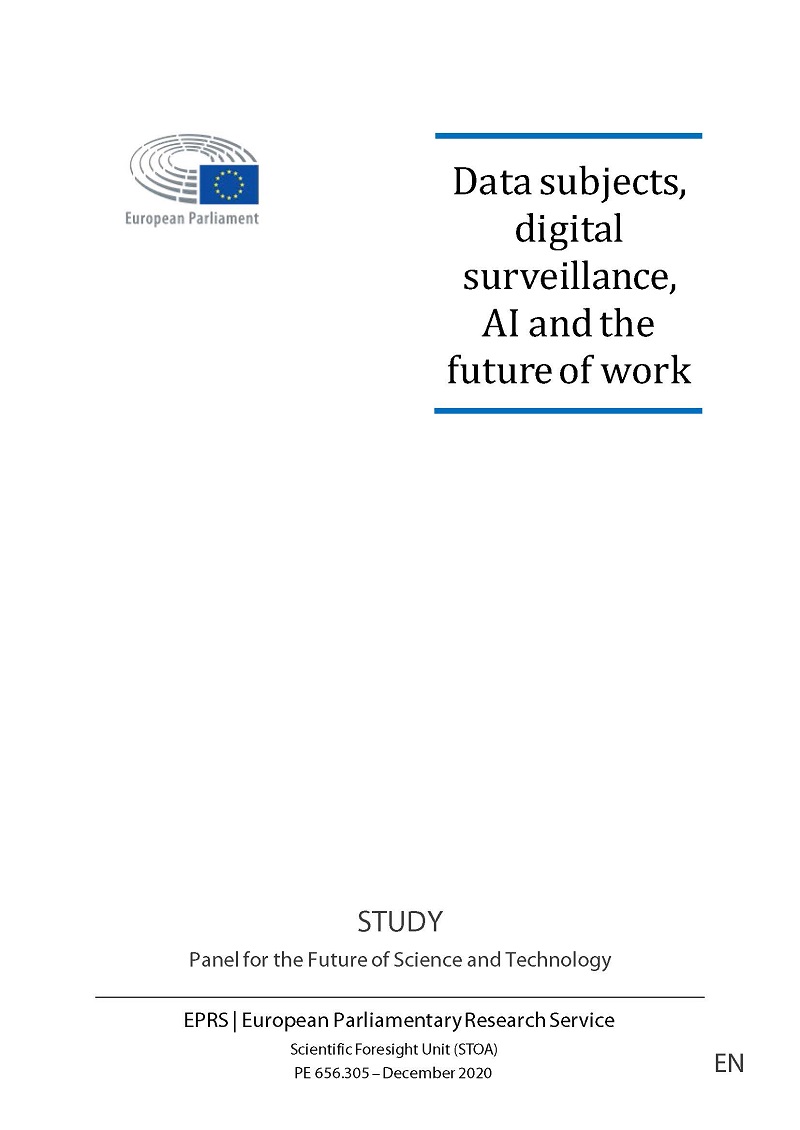
European Parliament study: Data subjects, digital surveillance, AI and the future of work
A new report published by the European Parliament Think Tank looks at how new technologies - in particular digital surveillance tools and "artificial intelligence" are changing the nature of work, the power of bosses and the rights of employees.
UK: COVID-19: Vaccinate prisoners first, say University of Oxford researchers
Academic researchers have said that people in prison should be amongst the first to receive COVID-19 vaccinations, given the risks that carceral facilities pose for managing outbreaks of the disease, and the fact that there is a high prevalence of prisoners with underlying health conditions placing them at greater risk than many other social groups.
EU: e-Privacy Regulation: Council Presidency aims for consensus with amended text
Four years after the European Commission published its proposal for the e-Privacy Regulation, member states are still unable to agree on a position for negotiations with the European Parliament. The latest attempt to reach a consensus comes from the Portuguese Presidency of the Council (in post from January-June this year), which has circulated a document to member states in which it is "proposing to simplify the text and to further align it with the GDPR. "
UK: London: Met announces stricter Covid enforcement approach
Press release published by the Metropolitan Police on 6 January 2021. London's police force is to enforce the new lockdown measures more strictly than previously, placing new emphasis on fining people and questioning people in the streets as to their activities.
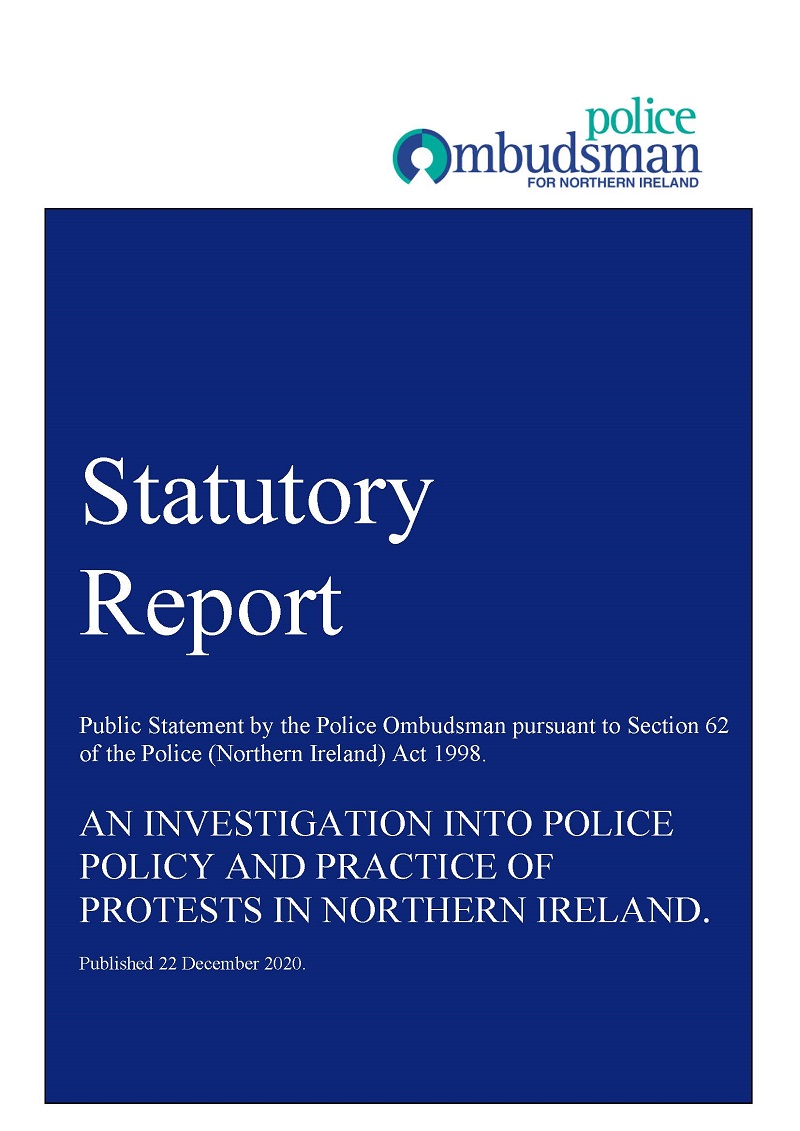
Northern Ireland: Special Police Ombudsman report on policing of protest during the pandemic
The Police Ombudsman for Northern Ireland has argued in a special report that although the different police approach to Black Lives Matter and "Protect Our Monuments" protests in summer this year was unfair, the approach was not motivated by racism. However, the Ombudsman's explanation for the differential treatment of the protests may not convince everybody.
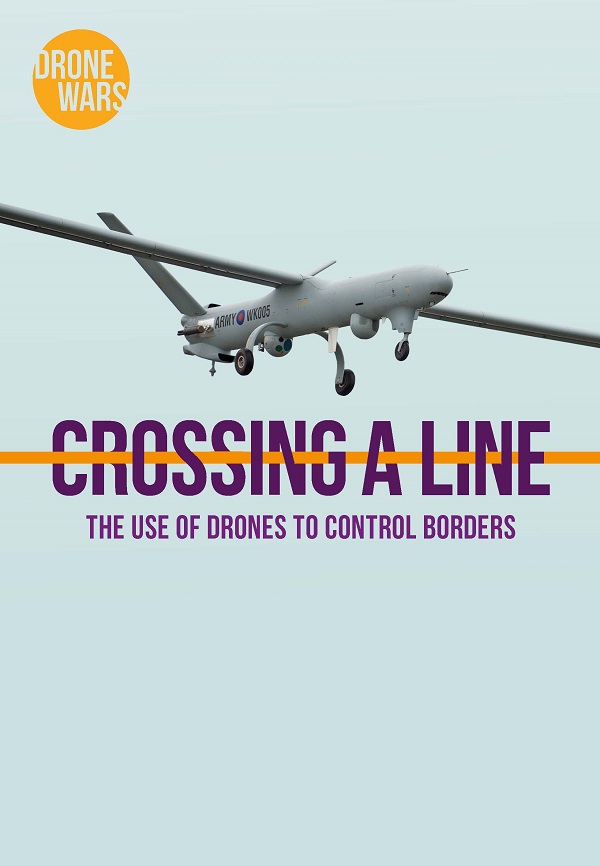
Drones for border control: a symptom of the security mindset, says new report
The increasing use of drones for border control purposes "is a symptom of viewing borders predominantly in terms of ‘security’ and perceiving people crossing borders as a security threat," says a new report from Drone Wars UK. In this security paradigm, "border control operations are heavily influenced by the military and driven by ‘national security’ considerations rather than human needs," warn the authors.
UK-USA: Assange extradition bid rejected due to suicide risk
A British judge has ruled that Wikileaks founder Julian Assange should not be extradited to the United States on the grounds that his mental health condition would make him a suicide risk, given the detention conditions he would be likely to face in a "supermax" prison in the USA.
EU: New counter-terror plans and more powers for Europol put rights at risk
Earlier this month, the European Commission published its new counter-terrorism agenda, alongside a proposal to expand the powers of EU policing agency Europol. Initial reactions from civil society to the proposals have been sharply critical, with the European Network Against Racism saying the plan "includes a range of initiatives that double down on policies and practices that are discriminatory, criminalizing and racializing."
EU court: Hungary has failed to fulfil its obligations under EU asylum and migration law
The Court of Justice of the EU has ruled that Hungary's actions in the field of migration and asylum are against the law.
Malta: Magistrate calls for new prisons if number of false passport cases continues to rise
Up to a third of Malta's prison population is made up of people who have been jailed for offences involving false passports. Some 250 people are currently behind bars for such offences. Whilst sentencing a Moroccan national to six months for use of a false passport, a magistrate recently said "that new facilities would need to be built to accommodate such offenders if the trend continued," and said there was a "dire need for a European and International mechanism for dealing with such cases."
UK: Essex lorry deaths: two found guilty over manslaughter of 39 Vietnamese people
Two men have been found guilty of the manslaughter of 39 people who suffocated to death in a lorry whislt being smuggled into the UK in October 2019. Two others were found guilty of conspiring to unlawfully smuggle people into the country, while the two ringleaders of the operation - which had been ongoing for years - pled guilty to manslaughter before trial.
Algorithms are created to maximise certain interests – and it’s not ours, says Chris Jones from Statewatch
As part of an international campaign to lift the lid on data privacy violations, The Privacy Collective is asking some of Europe’s leading experts why online privacy matters.
Greece: Government attacks on NGOs debunked
Claims by the Greek Migration Minister, Notis Mitarakis, that NGOs have been helping organise the irregular arrival of people onto the Aegean islands, have been debunked by a media investigation. Mitarakis' claims were made following the publication by the government of four video interviews with Somali citizens, which the government claimed proved they receiving illegal assistance from NGOs to arrive on Greek territory. However, the videos raise a number of questions that the government has failed to answer.
European Civic Forum: Civic Space Report 2020: Stories From The Lockdown
A new report from the European Civic Forum looks at the how civil society has responded to the COVID-19 pandemic, and how the pandemic has affected the work of civil society organisations. The report includes a general analysis of the situation in the EU, seven interviews and six case studies looking at the situation for LGBTI people and the situation in the Czech Republic, Germany, Greece, Ireland and Slovenia.
Spotted an error? If you've spotted a problem with this page, just click once to let us know.